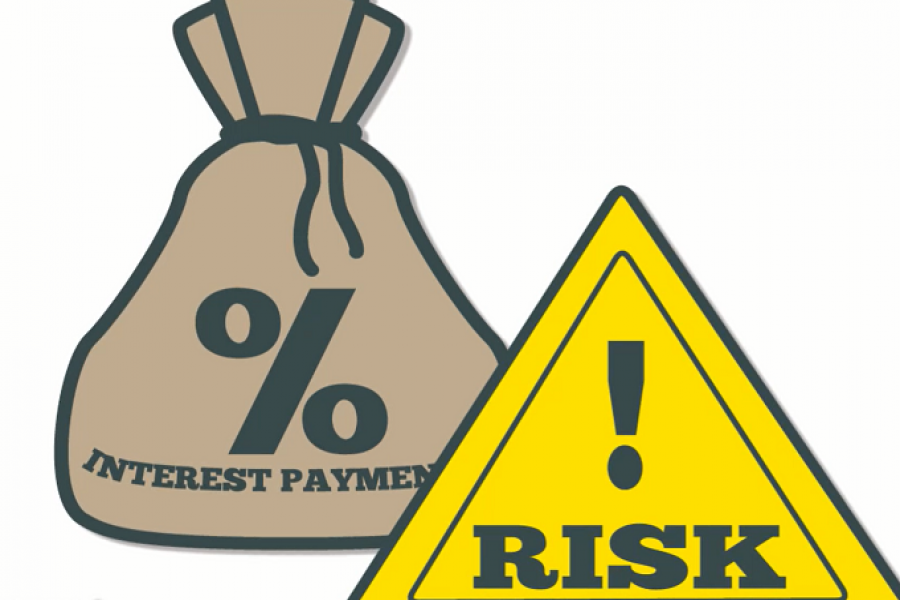
Published :
Updated :

Even a few years back, Bangladesh's private sector hardly knew how to go for foreign borrowings for their business needs. As such, they did never ask for permission from Bangladesh Bank (BB), the regulator. But things started getting changed only a few years back. And since then, more and more local business houses are asking for permission to borrow from abroad for their local business financing. The main reason for this, as they say, is that cost of borrowing from internal financial market is too high, and also, the internal market or the local commercial banks at times cannot supply the amount they ask for.
Initially, the regulator was reluctant in giving permission for such borrowing. The reasons were that the process was unknown to it and also it thought that the burden of repayment of such borrowing in foreign exchange will be too high. Naturally, when the private borrowers borrow money from external sources, they borrow the same in foreign exchange and ultimately the borrowed sum is to be returned with interest in foreign exchange too. The BB, being the sole account holder of all foreign exchange, bears the ultimate responsibility of such borrowing at least as much as the supply of foreign exchange is concerned when the time is ripe for repayment.
In Bangladesh, the use of foreign exchange is not open - rather, it is restricted and even convertibility of local currency taka into major foreign currencies is also restricted. A person or a business house cannot remit or borrow in foreign exchange from abroad merely at will. The local currency taka is partially convertible into foreign exchanges, only in current account - not in capital account. No Bangladeshi can take his income or wealth abroad in foreign exchange without asking for BB's consent. In such a situation, Bangladeshi businesses were supposed to bring back their export earnings in foreign exchange. If they want to remit any foreign exchange for any purpose - whether business or personal - they need to take BB's permission. For the last few years, the central bank granted a retention quota in foreign exchange earnings, which they were supposed to use on business purpose only.
But the BB, however, changed its stance in allowing foreign borrowing and using foreign exchanges for business purposes at home for the last few years. The business houses are of the opinion that if they can borrow from abroad, the cost of borrowing will be less, and that will also supplement the borrowing from the internal market. The situation of borrowing from external sources by our private sector increased at a time when interest rate in the internal market went too high. The interest rate abroad was less than half compared to the same in the local financial market.
So, facilitating the borrowing at a cheaper rate caused a paradigm shift in the role of the BB in favour of allowing the private borrowing from abroad. But cheap money has its cost too - too much of borrowing at cheap rates ultimately leads to over-leveraging of the business and the business afterwards in changing situations may fail to pay up the debt and even go bankrupt. One may wonder, what the Bangladeshi business houses are providing as collateral to the foreign creditors, or based on what the foreign creditors are selling the credit to the Bangladeshi business houses.
Already, Bangladeshi businessmen have taken more than one billion dollar worth of debt from foreign lenders. When the time for repayment of their borrowed money comes, only then their real capacity of using the fund will be tested. We do not know whether the BB is providing any sort of guarantee against foreign borrowing by our private sector. But if that happens, then it may lead to a financial catastrophe for Bangladesh. The financial meltdown of 1997 in the economies of the Southeast Asian countries should be an eye-opener for all concerned whenever the question of borrowing at cheap rates from abroad arises. At that time, these economies borrowed right and left from abroad, and at the end, when the creditors rushed to take out their money from these economies, the indebted economies failed to repay.
The values of local currencies plummeted, stock markets crashed, and some countries like Malaysia imposed capital control as an act of last resort to ward off further declines in the stock prices. However, we believe the borrowing by the Bangladeshi businessmen is still within the limit. If Bangladesh earns more money from its export, additional borrowings from external sources may not be a threat. The value of Bangladeshi currency vis-à-vis other major foreign currencies is also important when the issue of repayment comes. But the BB just cannot be the supervisor of the money the Bangladeshi businessmen are borrowing from abroad. The foreign creditors should be told very clearly that the onus of repayment of the borrowed money lies absolutely on the borrowers.
Abu Ahmed is Professor of Economics, University of Dhaka.


 For all latest news, follow The Financial Express Google News channel.
For all latest news, follow The Financial Express Google News channel.